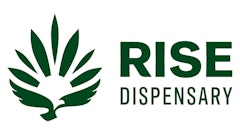TALLAHASSEE – PRESS RELEASE – Make it Legal Florida has announced their ballot effort to provide regulated access to cannabis to adults 21 and older has officially reached the required 76,632 signatures to achieve judicial review of their constitutional amendment language. Along with the verified signatures required for judicial review, Make it Legal Florida’s ballot measure has reached the review threshold in 10 congressional districts, three more than the required seven districts.
The Make it Legal Florida ballot initiative has reached more than 77,000 verified signatures in just 68 days. This milestone means the ballot effort will now undergo a judicial and financial impact review. Make it Legal Florida’s statewide effort has gathered a total of nearly 390,000 signatures to date— more than 77,000 of which have been verified. The remaining more than 313,000 signatures are currently being shipped to Supervisors of Elections around the state for verification. The Supervisors of Elections have 30 days to verify a petition once received.
Make it Legal Florida continues to collect petitions using a multi-tiered approach, with petitions gathered via mail, online and in person. The group has opened 40 offices around the state, more than 800 petition gatherers and continues to submit signatures to Supervisors of Elections. Make it Legal Florida has 82 days remaining to collect signed petitions and is on track to meet their goal.
“We are overwhelmed by the support the Make it Legal Florida effort has received around the state from Florida voters who believe adults should have access to regulated cannabis products,” said Nick Hansen, chairman of Make it Legal Florida. “We are continuing to deliver signatures for validation, and we are confident we will meet the deadline for Florida’s 2020 ballot.”
The effort to bring adult-use cannabis to Florida continues to gather bipartisan support from Florida voters, with three separate statewide polls showing a supermajority of Florida voters in support of regulated access for adults 21 and older. Make it Legal Florida needs a total of 766,200 verified signatures by Feb. 1, 2020, in order to appear on the ballot.
Make it Legal Florida was formed as a committee in 2019 for the purpose of proposing a constitutional amendment in 2020 to legalize the adult-use of cannabis in Florida. Specifically, the amendment would allow adults 21 and older in Florida to purchase cannabis for any reason from current and future licensed and regulated Medical Marijuana Treatment Centers (MMTCs), as long as it is in childproof packaging and not advertised to anyone younger than 21. Learn more at www.MakeItLegalFlorida.com.
























